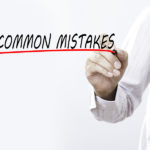Should you Update your Estate Plan if you Move to a New State?

I recently had a discussion with a client regarding whether and how they should update their estate plan if they move to a new state. That conversation comes up frequently, so I thought it would be a great topic for a blog article.
The U.S. Constitution requires states to give “full faith and credit” to the laws of other states. As a result, your will, trust, power of attorney, and health care proxy executed in one state should be honored in every other state. However, even if they are “valid” in another state doesn’t mean they will work well under that state’s laws or that they will work as well in practice, as described in Wealth Advisor’s recent article entitled “Moving to a New State? Be Sure to Update Your Estate Plan.”
Your last will should still be legally valid in the new state. However, the new state may have different probate laws that make certain provisions of the will invalid or no longer ideal. By way of example, Texas has a unique form of probate in which there is an independent executor. This minimizes court involvement in the probate which is what most clients prefer. We often revise wills of clients moving to Texas to authorize independent executors. Similarly, other states might have other unique provisions that you would want to utilize in that state.
This can also happen with revocable trusts, however trusts tend to be more portable. Once a trust is funded, you can change any provisions you need to ensure it works in that state and you can elect that state’s laws. So, it might need to be updated, but often is more portability.
You may also want to update your estate plan if you move to a new state to change your powers of attorney and health care directives. These estate planning documents should be honored from state to state, but sometimes banks, medical professionals, and financial and health care institutions will refuse to accept the documents and forms. Each state has very specific roles on how these are created and what they can accomplish, so it is typically advisable to create new ancillary documents based upon the law of the new state.
It is also helpful to keep in mind that it is practically important to redo ancillaries documents because lawyers and judges aren’t the ones reviewing them. Court systems will know how a will or trust applies under that state’s law because lawyers are involved in the process. Incapacity documents such as the power of attorney and health care directives are reviewed by non-legal professionals such as title companies, doctors, bankers or their support staffs. So practically speaking, it is easier to give them what they expect to see as they won’t have the expertise to recognize whether an out of state document is valid.
You should also know that the execution requirements of your estate planning documents may be different, depending on the state.
For example, there are some states that require witnesses on durable powers of attorney, and others that do not. A state that requires witnesses may not allow a power of attorney without witnesses to be used to convey real estate, even though the document is perfectly valid in the state where it was drafted and signed.
When you move to a different state, it’s also a smart move to consult with an experienced estate planning attorney because interstate moves often mean another change in circumstances that would necessitate a change to the estate plan. For example, the move might have been because of a change in income, marital state or to support a family member in ill health. You can see here for other reasons to consider updating your estate plan at that point. https://galligan-law.com/when-to-update-your-estate-plan/
Moreover, there may be practical changes you want to make. For example, you may want to change your trustee or agent under a power of attorney based on which family members will be closer in proximity or to someone familiar with the new property. This is also a good time to review trust funding as you will have new assets.
For all these reasons, when you move out of state it’s wise to have an experienced estate planning attorney in your new home state review your estate planning documents.
Reference: Wealth Advisor (Jan. 26, 2021) “Moving to a New State? Be Sure to Update Your Estate Plan”

